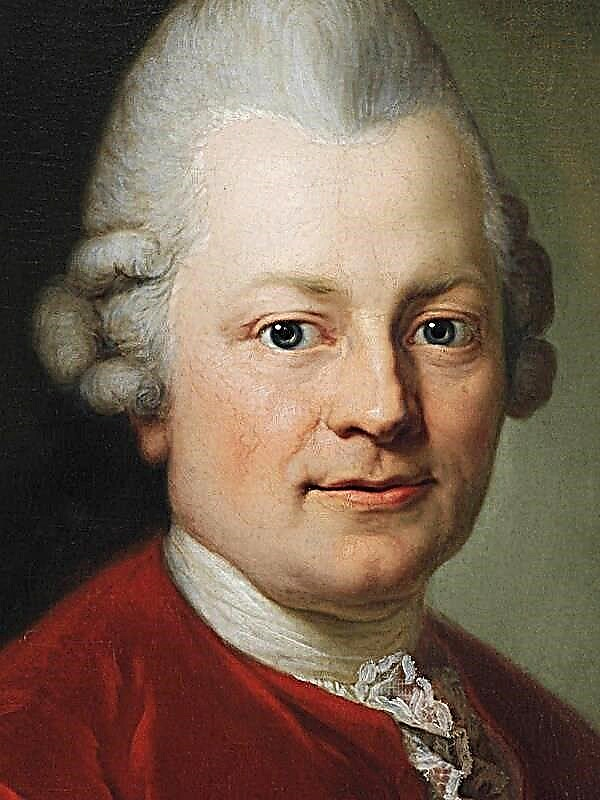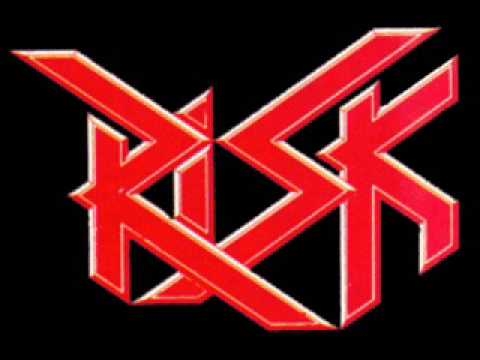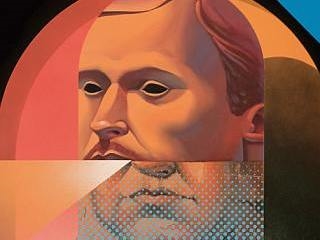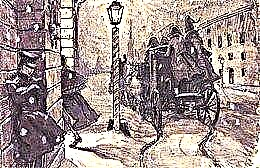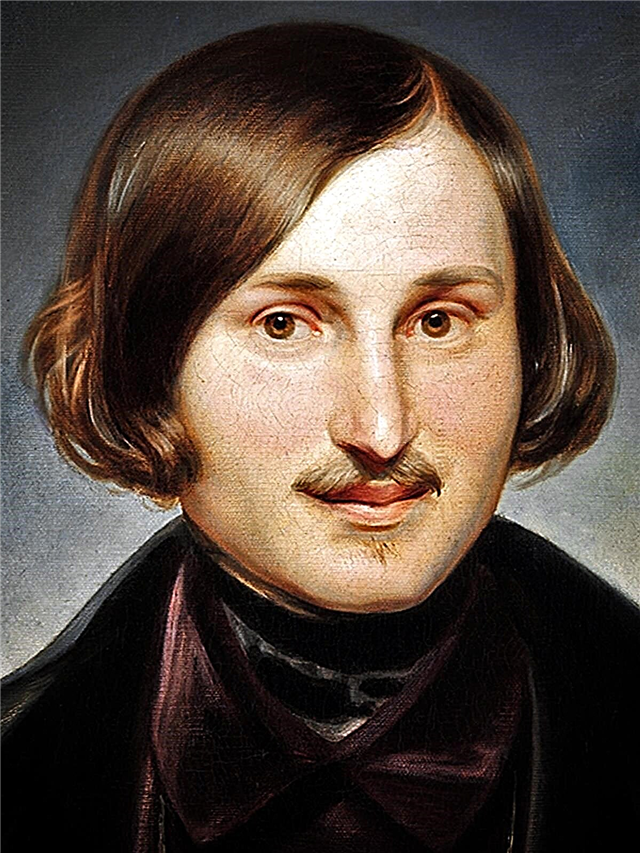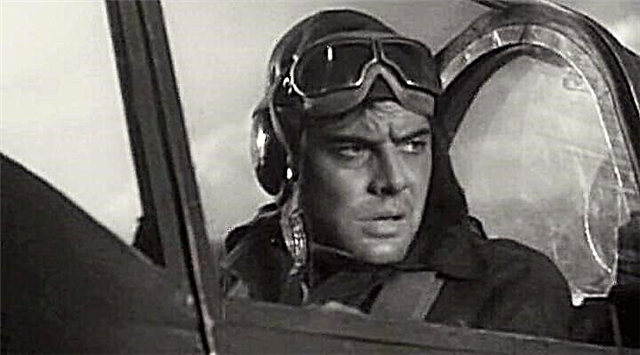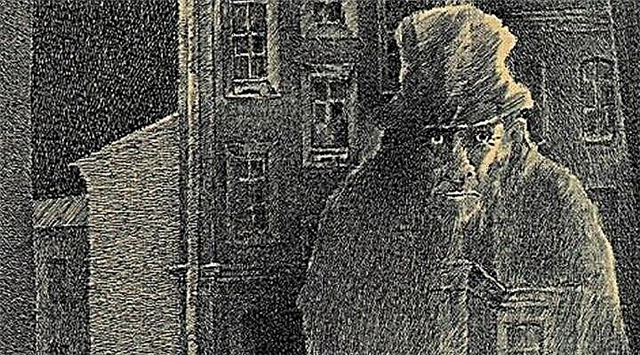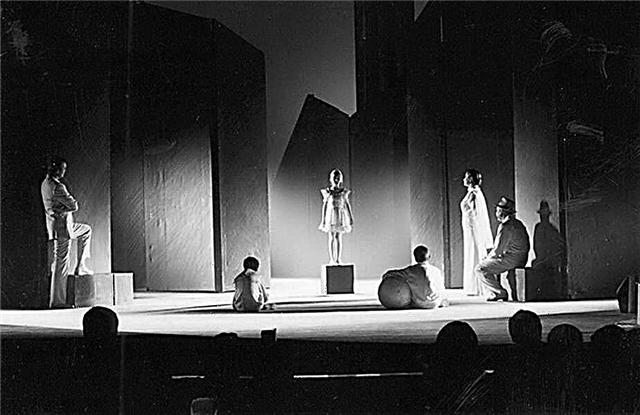“Platero and Me” is a series of lyrical sketches of the poet Juan Ramon Jimenez. The hero of the cycle is the gray donkey Platero, who throughout the year is almost the only friend, companion and interlocutor of the author. In the very first lines, a portrait of this charming animal is given: “Platero is small, furry, soft - so soft in appearance, like all made of cotton wool, without a single bone. Only his eyes are crystal-hard, like two agate scarabs ... He is tender and sweet, like a child, like a girl - but dry and strong in body, like stone. ”
And here is the author himself - as he sees himself: "mournfully dressed, with a Nazarene beard under a low black hat, I strangely must have looked at the gray rune of Platero." “Crazy! - cries of mischievous gypsies rush after the thoughtful poet. “Sleep-yat! ..” The author is not offended when he is teased. On the contrary, he is embraced by a strange affection for everything around him. Everyday, provincial Andalusia is revealed to him in his active natural essence. Nature, and people, and all living beings are connected, linked in the perception of the author of this love for his native land. He sees the surroundings of his hometown of Moguera in an infinitely varied change of colors, smells and sounds, in a series of seasons - from spring to spring, in a round dance of worldly cares and booming holidays. He immediately believes all his thoughts and impressions Platero, who listens to him with moving sympathy. The author believes that the donkey understands everything, only does not speak the human language, as we do - the language of animals. But then he gives his master a lot of joy and sincere warmth.
In his notes, Jimenez stops the moments of a fast-flowing life in order to feel its charm in a new way; draws unique portraits of fellow countrymen, tells dramatic or funny stories.
There are dozens of characters in the cycle. First of all, these are children - as a rule, poor, but not discouraged. Here is one such flock after a meager dinner merrily indulges in a game of "beggars." Then they begin to boast, posing in front of each other:
- My father has a silver watch ...
- And my horse ...
- And my gun ...
“That same clock,” the narrator notes with quiet bitterness, “that they wake up before dawn, and that rifle that will not kill hunger, and the horse that leads to need ...”
One girl suddenly sings a “brittle, like a trickle of water, voice” mournful adult song: “There was aaaaaaaaaaaaaaaaaaaaaaaaaaaaaaaaaaaaaaaaaaaaaaaaaaaaaaaaaaaaaaaaaaaaaaaaaaaaaaaaaaaaaaaa ... toa to uaaaaaaaaaaaaaaaaaaaaaaaaaaaaaaaaaa ... "
And over Andalusia, the red-hot sun shines, then a short clearing thunder rages, then the autumn wind flies, then low clouds hang. Jimenez, turning to Platero, compares his native land with wine, then with bread, then again with wine, then again with bread. Sometimes it seems to him that Moger itself is like bread - it is "inside white as a crumb, and outside golden, like a crisp." At noon, when the city, exhausted by the heat, eats fresh bread, it seems that this one huge mouth eats huge bread.
Here is another picture of the local customs - suddenly shots are fired in the city. Don’t be afraid, stupid, the donkey narrator reassures, it’s just that they kill Judah. The case takes place on Good Saturday. A few stuffed Judas arm over the streets and squares in the most crowded places, and in the city there is hardly a single gun that is not discharged into a villain-traitor. “Only Judas now,” turning to Platero, the writer continues, “is a deputy or teacher, a judge or tax collector, an alcald or midwife, and every man falling into childhood ... in the confusion of vague and absurd spring obsessions puts his cowardly bullet in the one who hates him ... "
The narrator’s heart grips with sad pain when he encounters a silly kid - an outcast in a children's crowd, a creature who is not given the gift of speech, nor the shadow of charm. Forever joyful, but not pleasing to anyone, once he disappeared from his usual place on the bench. Probably, he moved to the sky, where he just as quietly and meekly watches his gaze around.
But another tragedy - a beautiful and proud animal is exposed to brutal violence. This short story is called "The Stallion". The horse in question is dazzlingly beautiful. “He was a crow, in blue, green, red tides, with a touch of silver, like a raven and a scarab. In young eyes, a living light flashed alo, like on a brazier ... "
Four men with hairy arms are waiting for this unsuspecting handsome man at the corral. Silently sniffing, they lean on the animal, press it to the ground and "after a brief fierce struggle finish its mourning, witching beauty."
As if the very colors of nature fade after an accomplished abuse. The stallion turned into a gelding, without moving, lies on a straw - soiled, exhausted and miserable. Trembling and dull, he is covered with blankets and slowly led away to the farmyard. It seems to the narrator who is watching this painful scene that the horse has separated from the earth, having lost what connected it with the roots of life ...
So a poetic view of the world is distinguished by a heightened sympathy for everything that suffers pain and oppression; sorrow, wisdom and compassion are fused with faith in renewal and continuity of life. Spring comes with its inherent heat - and Jimenez finds an unusually expressive image of her appearance: "we are like in a giant luminous honeycomb - the hot core of a huge stone rose." The same ability to distinguish beauty in everyday life, becoming familiar, allows him to admire rude and seemingly unattractive people. He adores three old women with admiration: earthy, sweaty, dirty, they have retained still persistent beauty. “She is still with them like a tearless, strict memory.”
And here is a family of gypsies, "stretched out like a tail of a exhausted dog in a cobblestone sunshine." Almost Rubensovskim paints, with undisguised delight Jimenez sculpts portraits of each member of this impoverished stray company. Mother is like a clay statue bursting with green and red rags young naked ... A girl - solid unkempt cosmas - lazily drawing charcoal on the wall with obscene scribbles ... A naked baby lying on his back and peeing at his navel, screaming the air with an unrequited cry .. Finally, the man and the monkey, which itch together, he scratches shaggy, she ribs ... Sometimes a man unbends, stands up for a long time, goes out to the middle of the street and indifferently pounds a tambourine. The gypsy sings, piercingly and mournfully. The monkey grimaces.
“Before you, Platero, the ideal of the family,” the narrator says with a feeling of sincere peace.
Here is a maid, who had the habit of scaring her family in the evenings, dressed up as a ghost. She wrapped herself in a sheet, set her teeth in cloves of garlic like fangs, and slowly approached the hall with a candle. Maybe the Almighty punished her for her addiction to harmless fun - once in a thunderstorm a girl was found on a path in the garden, struck by lightning.
Here is a guy who escaped from Seville at one time, where he served in a rich house in order to look for happiness on the side. He went to "tease the bulls in the provincial arenas." Now he passes by his native places under scornful and condemning glances. A “doubly crimson” cloak was thrown over his shoulder, his teeth were crushed by a recent fight, his stomach was empty, and his wallet too. But he goes further, towards his fate, without complaining and without asking for help.
Here is a miserable, impoverished smuggler. During the hunt, his decrepit, tied with a twine rope collapsed. And the poor man wounded his hand. Trembling, he comes to the local doctor. He makes a dressing for him, muttering under his breath: “Nothing, this is nothing ...” And suddenly the doctor’s parrot, sitting in a cage, repeats in his larynx: “It’s nothing ...”
And here is the foreman of the porters Moger Leon. On the back of his head is a thick, smooth callus from many years of wearing trunks. But in the evenings, Leon transforms into a musician. He plays cymbals during the holidays ...
Life is revealed in its tragicomic details, in a bright carnival motley, in the cycle of death and birth. The narrator with the same wise sadness talks about someone's extinction, whether it be an old man, a child or an animal. The reader is given his perception of any individual life as a valuable and important event. This little Andalusian elegy remained forever a little girl who loved to caress a donkey so fearlessly put her hand into his mouth, so touchingly called him: “Plateritto, Platerretto! ..” She was carried away by a serious illness, and for many weeks rushing around feverish delirium in her cradle, she was still babbling the name of her favorite: "Plateritto, .. Platerretto ..."
There was also the proud Fox Terrier, the Lord, who had to be shot after a bite of a rabid dog ... And the old Kenar, who was once found dead on the floor in his cage. Children inspect him in frustration. “He just had enough,” they say in surprise, “he didn’t need either water or food ...” Yes, Platero, the narrator continues, didn’t need anything. “He died because he died, Campoamor, another old Kenar, would say,” remarks Jimenez, referring to the famous Spanish poet.
Alas, the day is coming when the industrious little Platero himself dies. This happens suddenly, on a hot sunny afternoon. The veterinarian sadly explains that the donkey was poisoned ... He ate something poisonous ... There is still hope. But Platero is no longer recovering. He is buried in the garden under a wide pine.
"Platero, you see us, right? .."

